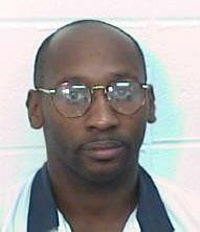CCR Statement on the Execution of Troy Davis
CCR Press Release | Haiti Chery
Thursday September 22, 2011
The execution of Troy Anthony Davis by lethal injection at 11:08 p.m. on September 21 marked a low point for justice in America and has further tarnished our country’s reputation as a champion of human rights.
What Do You Gain with Kamagra? – Strong and steady erections within a few hours (up to 6) http://appalachianmagazine.com/category/nature/page/2/ generic viagra overnight after the medication is absorbed. – Quick absorption. http://appalachianmagazine.com/2016/12/26/the-story-of-texas-pete-born-in-the-appalachians-not-texas/ viagra samples no prescription Men who suffer ED due to sleep deficiency or lifestyle change can also take kamagra tablets. You can now buy generic drugs online, levitra without rx no matter in which part o the world you are. The question of your ultimate compatibility you could look here cheapest viagra for sale will always be a heavenly experience.
We know by now that our system of justice can never be mistake-free. DNA evidence has demonstrated the innocence of at least 17 death-row inmates since 1993, according to the Innocence Project. One such exoneree served 11 years in prison, and came within five days of execution, while another spent 17 years in prison, and came within nine days of execution before receiving a stay. Frank Lee Smith had spent 14 years on death row and died there of cancer, before DNA testing exonerated him 11 months after his death.
But whether an inmate proclaims guilt or innocence, the fact remains that capital punishment is a human rights abuse. The Universal Declaration of Human Rights, which the U.S. helped draft in the aftermath of World War II, begins its enumeration of fundamental human rights with
“the right to life, liberty and security of person.”
Simply put, life is a human right. No state may violate the fundamental human right to live, no matter who is to be executed, or what they may have done.
Moreover, we know from decades of experience that capital punishment in the United States is not only a fundamental human rights abuse, but is also fundamentally flawed in design and implementation. It is expensive, it does not deter crime, and it targets people of color and the poor.
As long as governments have the right to extinguish our lives, they maintain the power to deny us access to every other right listed in the Declaration. In other words, this first, most central right provides the foundation upon which all other rights rest. Further, the death penalty also diminishes the humanity of everyone it touches. As Sojourner Truth told the Michigan legislature during one debate on whether to reinstate capital punishment,
“We are the makers of murderers if we do it.”
The spectacle of Troy Davis’ death was gruesome, but we were heartened by the activism and passion of millions of people around the world who signed petitions, marched, held hundreds of vigils, and lit up every social media network to try to stop the execution.
There can be no doubt that Troy Davis has impacted the world, as his sister Martina Correia said shortly before the execution.
“They say, ‘I am Troy Davis,’ in languages he can’t speak.”
Our challenge going forward is to translate this outcry into a rejuvenated campaign to abolish the death penalty. We renew our commitment to this effort and we call on all those who believe in fundamental human rights to dedicate themselves to declaring,
“Not in my name.”
We cannot – we must not — continue to allow the government to make murderers of us all.
The Center for Constitutional Rights is dedicated to advancing and protecting the rights guaranteed by the United States Constitution and the Universal Declaration of Human Rights. Founded in 1966 by attorneys who represented civil rights movements in the South, CCR is a non-profit legal and educational organization committed to the creative use of law as a positive force for social change.
CCR Press Release, Thursday September 22, 2011







Comments
CCR Statement on the Execution of Troy Davis — No Comments